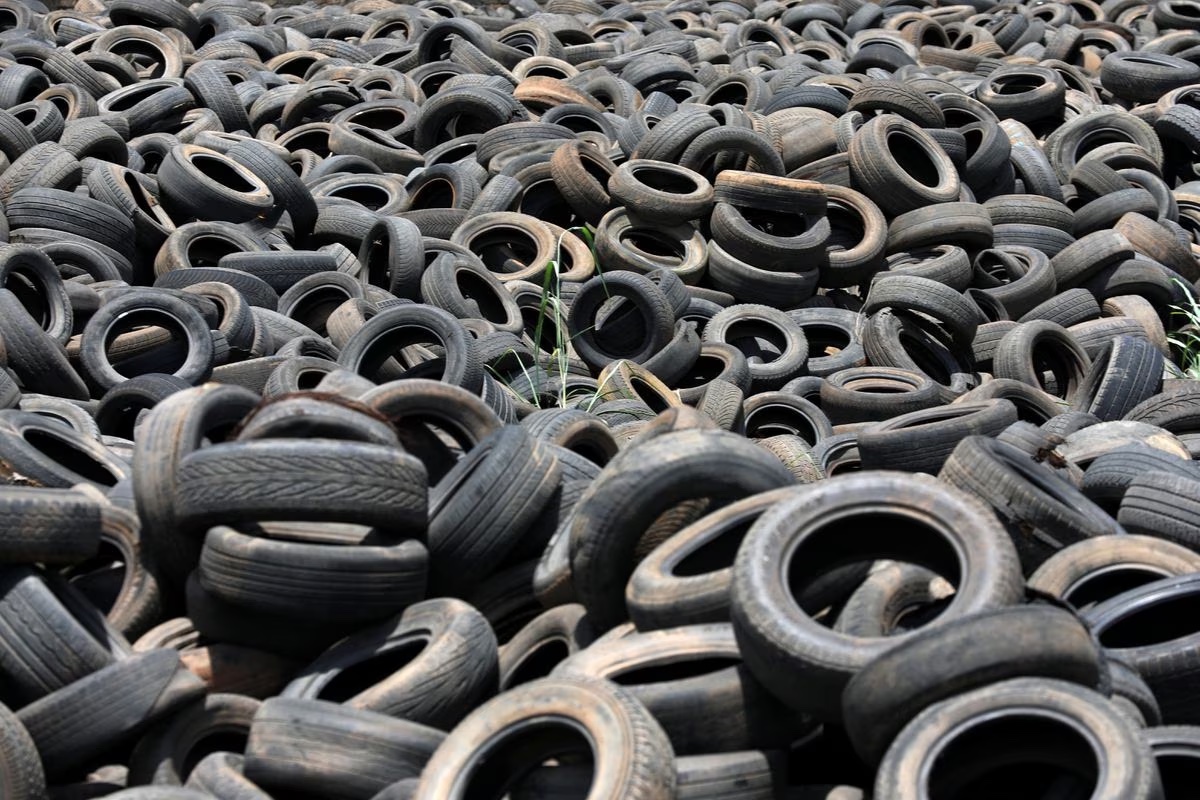June 15 (Reuters) – Graphene added to tyres could replace the toxic chemical 6PPD, U.S. startup Carbon Rivers says, as pressure mounts on the auto industry to eliminate the widely-used compound that has polluted waterways and been found to be lethal to some fish.
Later this year, California is expected to be the first authority to demand tyre-makers demonstrate they are seeking an alternative to 6PPD.
The antioxidant and antiozonant is found in all tyres today because it stabilises them and reduces cracking, but scientific research published in 2020 found the chemical was to blame for mass deaths of Coho salmon off the U.S. West Coast.
Carbon Rivers, based in Knoxville, Tennessee, says adding graphene nanoflakes to tyres could reduce emissions by 28% and replace most or all of the 6PPD.
Tyre-makers are under pressure to find a solution as the extra weight of electric vehicles (EVs) means quantities of 6PPD released as tyres make contact with the road are set to surge.
Carbon Rivers’ Chief Strategy Officer David Morgan said testing using graphene nanoflakes in tyres has already shown a “tremendous reduction” in 6PPD.
The company is working with regulators and testing could begin in the first quarter of 2024, Morgan said, adding the company’s graphene nanoflakes could be used in tyres on the road as soon as 2025.
“We’ve had some initial conversations with tyre-makers,” Morgan said. “We would like to see this in commercial testing.”
He said graphene – regarded as a super material because of properties including great strength, flexibility and thermal conductivity – is a safe, inert substance that could be added to tyres at a “very, very low price.”
A spokesman for California’s Department of Toxic Substances Control said in an email there have not been “direct discussions” with any tyre-makers about using graphene as an antiozonant, but added “we are aware of at least one company (not a tyre manufacturer) evaluating graphene as a potential alternative to 6PPD.”
A spokesman for Pirelli (PIRC.MI) said the tyre-maker has researched graphene and other advanced materials, and would investigate it as an alternative for 6PPD.
“At the moment there is no evidence that a graphene material could be a viable alternative to 6PPD in tyres, thus a timeline of 2025 for its industrial application… does not seem realistic,” he added.
Pirelli was in contact with advanced material producers, but does not disclose names, he said.
A spokesperson for Michelin (MICP.PA) said “to date, no test or data demonstrate that graphene could be an alternative to 6PPD in tyres.”
Some tyre-makers already use graphene for speed, grip, durability and puncture resistance, though western manufacturers are wary of issues of dependency given China controls around 65% of the global supply of graphite, needed to produce graphene.
Mark Bissett, a reader in nanomaterials at the Henry Royce Institute & National Graphene Institute at the University of Manchester, said that “as with all nanomaterials there are some unknowns which require further study to verify its safety.”
“But from the studies done so far the consensus is that graphene,” is safe, he added.











